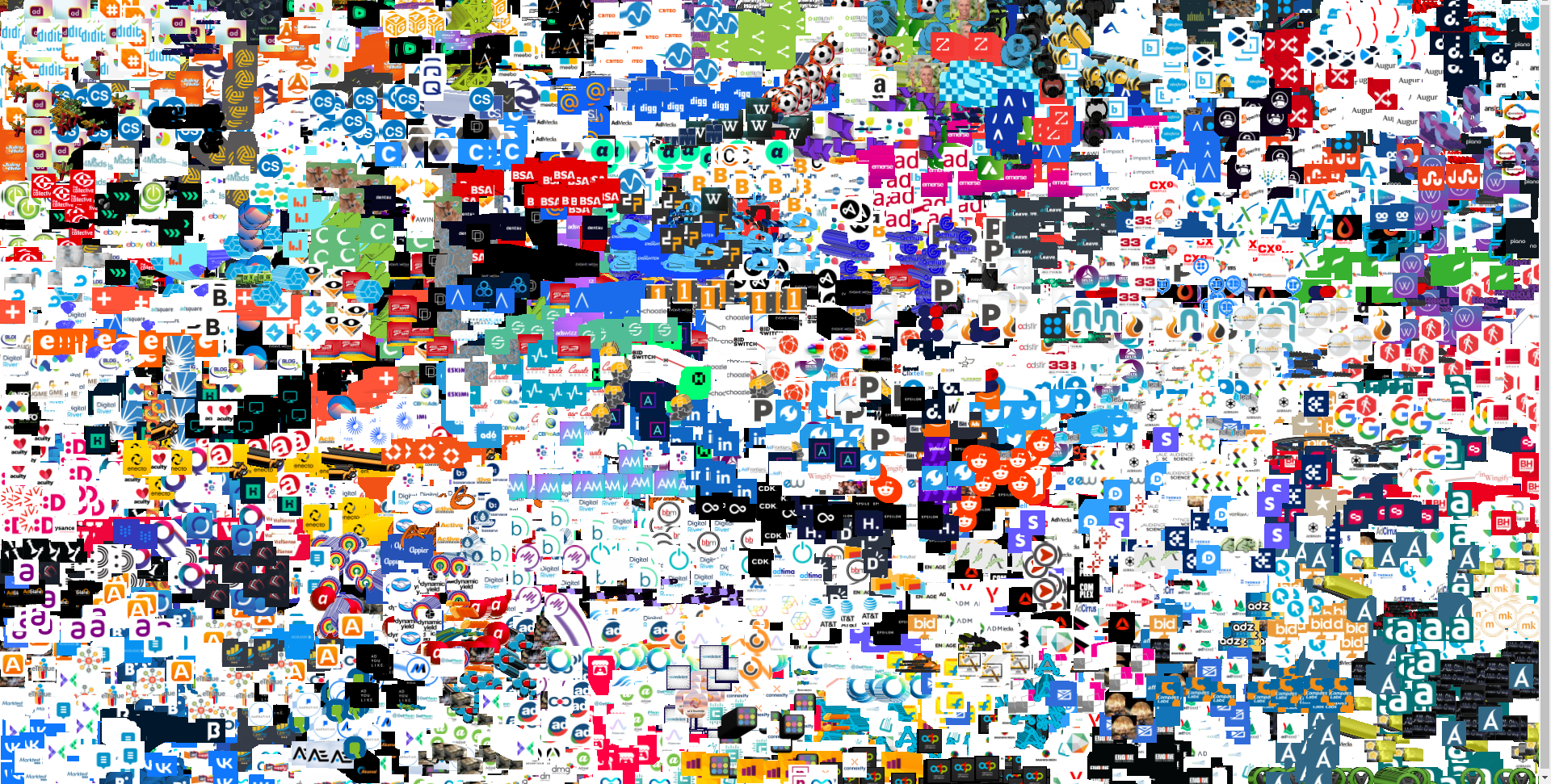Carbolytics is a project at the intersection of art and research that aims to raise awareness and call for action on the environmental impact of pervasive surveillance within the advertising technology ecosystem (AdTech), as well as to provide a new perspective to address the social and environmental costs of opaque data collection practices. Online tracking is the act of collecting data from online user activity, such as reading the news, purchasing items, interacting on social media or simply searching online. It is well known that tracking and recording users’ behaviour has become a major business model in the last decade. However, even though the societal and ethical consequences of abusive online surveillance practices have been a subject of public debate at least since Snowden’s revelations in 2013, the energy and environmental costs of such processes have been kept away from the public eye. The global data collection apparatus is a complex techno maze that needs vast amounts of resources to exist and operate, yet companies rarely disclose information on the environmental footprint of such operations. Moreover, part of the energy costs of data collection practices is inflicted upon the user, who also involuntarily assumes a portion of its environmental footprint. Although this is a critical aspect of surveillance, there’s an alarming lack of social, political, corporate and governmental will for accountability, thus a call for action is urgent.
AdTech is the primary business model of the data economy ecosystem or, in other words, the “money-making machine that fuels the Internet”. [1] In 2021, the global ad spending across platforms reached $763.2 billion, and it is expected to rise 10% in 2022. [2] Moreover, in 2020, 97.9% [3] of Facebook’s and 80% of Google’s global revenue was generated from advertising, and, excluding China, these companies, together with Amazon, will dominate 80% [4] to 90% of the market in 2022. [5] Yet, despite the extraordinary importance of AdTech within the global economy, its methods and processes are extremely opaque and thus incredibly difficult to control and regulate.
In a nutshell, AdTech analyses, manages and distributes online advertising. It encompasses a wide array of players, tools and methodologies, such as ad exchanges, real-time bidding and micro-targeting, which heavily rely on user data in order to effectively target and deliver advertising. Hence, data collection is a key resource to its global supply chain. But how is user data actually being harvested?
Typically, data is collected through a user’s device through cookies and other tracking technologies integrated into devices, web pages, apps and all kinds of interactive and audiovisual digital content. Despite being created and stored in the user’s device, tracking technologies are mostly undetectable to the average user, which makes extracting large amounts of user data a relatively easy task. Moreover, despite their “invisibility” and relatively small size, tracking technologies are responsible for triggering millions of algorithmic processes that ultimately facilitate trading in data on a global scale, nurturing an ever-growing ecosystem that densely relies not just on exploiting user data but also on sucking out the power of the user’s device to actually function.
The research behind Carbolytics identifies and analyses the carbon emissions of the total number of cookies belonging to the top one million websites. The investigation identified more than 21 million cookies per single visit to all these websites, belonging to more than 1200 different companies, which translates to an average of 197 trillion cookies per month, resulting in 11,442 metric tonnes of CO2 emissions per month. It’s important to understand that this number reflects only browser-based cookie traffic and does not include other behavioural advertising tools, so we estimate the actual number of emissions by tracking technologies to be dramatically higher.
Finally, by introducing this analysis on climate and collective rights, Carbolytics seeks to add an often unexplored but critical layer to the traditional individual rights-based criticism of the AdTech industry, while providing strong evidence to inform the many communities that advocate for tech and climate change accountability.
Production: Aksioma in the frame of konS platform.
[1] Hwang, T. (2020). Subprime Attention Crisis: Advertising and the Time Bomb at the Heart of the Internet. New York: Fsg Originals X Logic, Farrar, Straus And Giroux.
[2] Hayes, D. (2021, December 7). Advertising’s Robust Recovery This Year Will Be Followed by Double-Digit Gains in 2022, Media Agencies Predict. Deadline. Retrieved January 25, 2022, from deadline.com/2021/12/advertising-recovery-2021-covid-forecast-2022-digital-1234885438
[3] Facebook Ad Revenue 2009–2018. (2021, February 5). Statista. Retrieved January 25, 2022, from www.statista.com/statistics/271258/facebooks-advertising-revenue-worldwide
[4] Graham, M., & Elias, J. (2021, May 18). How Google’s $150 Billion Advertising Business Works. CNBC. Retrieved January 25, 2022, from www.cnbc.com/2021/05/18/how-does-google-make-money-advertising-business-breakdown-.html
[5] Adgate, B. (2021, December 8). Agencies Agree; 2021 Was a Record Year for Ad Spending, with More Growth Expected in 2022. Forbes. Retrieved January 26, 2022, from www.forbes.com/sites/bradadgate/2021/12/08/agencies-agree-2021-was-a-record-year-for-ad-spending-with-more-growth-expected-in-2022
CV
Joana Moll is a Barcelona/Berlin-based artist and researcher. Her work critically explores the way techno-capitalist narratives affect the alphabetization of machines, humans and ecosystems. Her main research topics include internet geopolitics, data materiality, surveillance, techno-colonialism and interfaces. She has presented her work in renowned institutions, museums and universities around the world, such as at the Venice Biennale, MAXXI, MMOMA, CCCB, ZKM, Ars Electronica, transmediale, ISEA and the British Computer Society, among many others. Her work has been featured in The Financial Times, Der Spiegel, National Geographic, Quartz, Wired, Vice, The New Inquiry, Netzpolitk, O’Globo, La Repubblica, Fast Company, NBC and the MIT Press. She is the co-founder of the Critical Interface Politics Research Group at HANGAR [Barcelona] and co-founder of The Institute for the Advancement of Popular Automatisms. She is currently a visiting lecturer at Universität Potsdam and Escola Elisava.
